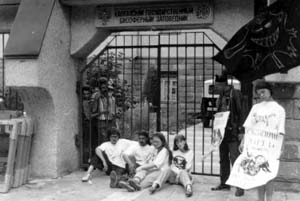 |
In modern world, values are measured on
three coexisting scales: non-materialistic, materialistic, and postmaterialistic.
The latter term was introduced by American sociologist R. Engelhart (Silent
Revolution, 1997, and Cultural Shift in Developed Indus-trial Society,
1990). His studies are based on worldwide surveys of public opinion. The
core ides is that material well-being of postwar period resulted in major
shift in large populaces’ perception of values. Engelhart calls former
values "materialistic" and the new one — "post-materialistic".
Respondents in the surveys were offered a wide range of values and should
check those of them they perceived as their own.
|

![]()


